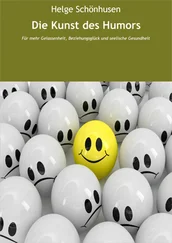Rolf Dobelli - Die Kunst des klaren Denkens
Здесь есть возможность читать онлайн «Rolf Dobelli - Die Kunst des klaren Denkens» весь текст электронной книги совершенно бесплатно (целиком полную версию без сокращений). В некоторых случаях можно слушать аудио, скачать через торрент в формате fb2 и присутствует краткое содержание. Год выпуска: 2011, Издательство: Carl Hanser Verlag, Жанр: Психология, на немецком языке. Описание произведения, (предисловие) а так же отзывы посетителей доступны на портале библиотеки ЛибКат.
- Название:Die Kunst des klaren Denkens
- Автор:
- Издательство:Carl Hanser Verlag
- Жанр:
- Год:2011
- ISBN:нет данных
- Рейтинг книги:4 / 5. Голосов: 1
-
Избранное:Добавить в избранное
- Отзывы:
-
Ваша оценка:
- 80
- 1
- 2
- 3
- 4
- 5
Die Kunst des klaren Denkens: краткое содержание, описание и аннотация
Предлагаем к чтению аннотацию, описание, краткое содержание или предисловие (зависит от того, что написал сам автор книги «Die Kunst des klaren Denkens»). Если вы не нашли необходимую информацию о книге — напишите в комментариях, мы постараемся отыскать её.
Die Kunst des klaren Denkens — читать онлайн бесплатно полную книгу (весь текст) целиком
Ниже представлен текст книги, разбитый по страницам. Система сохранения места последней прочитанной страницы, позволяет с удобством читать онлайн бесплатно книгу «Die Kunst des klaren Denkens», без необходимости каждый раз заново искать на чём Вы остановились. Поставьте закладку, и сможете в любой момент перейти на страницу, на которой закончили чтение.
Интервал:
Закладка:
Die Reziprozität
Cialdini, Robert B.: Influence: The Psychology of Persuasion , HarperCollins, 1998, S. 17 ff.
Reziprozität als biologische Kooperation: siehe irgendein Biologie-Grundbuch seit 1990.
Theorie ursprünglich von Robert Trivers: Trivers, R. L. (1971). The Evolution of Reciprocal Altruism . The Quarterly Review of Biology 46 (1): 35–57.
Die evolutionärpsychologische Begründung der Reziprozität, siehe: Buss, David M.: Evolutionary Psychology. The New Science of the Mind , Pearson, 1999. Siehe auch: Baumeister, Roy F.: The Cultural Animal: Human Nature, Meaning, and Social Life , Oxford University Press, 2005.
The Confirmation Bias (Teil 1)
»What Keynes was reporting is that the human mind works a lot like the human egg. When one sperm gets into a human egg, there’s an automatic shut-off device that bars any other sperm from getting in. The human mind tends strongly toward the same sort of result. And so, people tend to accumulate large mental holdings of fixed conclusions and attitudes that are not often reexamined or changed, even though there is plenty of good evidence that they are wrong.« (Munger, Charles T.: Poor Charlie’s Almanack , Third Edition, Donning, 2008, S. 461 f.)
Taleb, Nassim Nicholas: The Black Swan , Random House, 2007, S. 58.
»Neue Informationen stören das Bild. Wenn man einmal zu einer Entscheidung gekommen ist, so ist man froh, der ganzen Unbestimmtheit und Unentschiedenheit der Vorentscheidungsphase entronnen zu sein.« (Dörner, Dietrich: Die Logik des Misslingens. Strategisches Denken in komplexen Situationen , Rowohlt, 2003, S. 147.
Zum Experiment mit der Zahlenreihe, siehe: Wason, Peter C.: »On the failure to eliminate hypotheses in a conceptual task«, Quarterly Journal of Experimental Psychology 12 (3), 1960, S. 129–140.
»Faced with the choice between changing one‘s mind and proving there is no need to do so, almost everyone gets busy on the proof.« (John Kenneth Galbraith)
The Confirmation Bias (Teil 2)
Stereotypisierung als Spezialfall des Confirmation Bias, siehe: Baumeister, Roy F.: The Cultural Animal: Human Nature, Meaning, and Social Life , Oxford University Press, 2005, S. 198 f.
The Authority Bias
Als »iatrogen« werden Krankheitsbilder und Schäden bezeichnet, die durch ärztliche Maßnahmen verursacht wurden. Zum Beispiel Aderlass.
Cialdini: Robert B.: Influence: The Psychology of Persuasion , HarperCollins, 1998, S. 208 ff.
Zum Track-Record der Ärzte vor 1900, siehe: Arkiha, Noga: Passions and Tempers: A History of the Humours , Harper Perennial, 2008.
Nach der Finanzkrise 2008 hat es zwei weitere unerwartete Ereignisse globalen Ausmaßes (Black Swans) gegeben: die Aufstände in den arabischen Ländern (2011) und die Tsunami-Atomreaktor-Katastrophe in Japan (2011). Keine einzige von weltweit schätzungsweise 100.000 Polit- und Sicherheitsautoritäten hat diese beiden Events vorhergesehen. Grund genug, den Autoritäten zu misstrauen – besonders wenn es sich um »Experten« auf dem sozialen Gebiet (Modeströmungen, Politik, Ökonomie) handelt. Diese Leute sind nicht dumm. Sie haben einfach das Pech, dass sie eine Karriere gewählt haben, wo sie nicht gewinnen können. Es bleiben ihnen zwei Alternativen: a) zu sagen: »Ich weiß es nicht« (nicht die beste Wahl, wenn man eine Familie zu ernähren hat), oder b) die Schaumschlägerei.
Milgram, Stanley: Obedience to Authority – An Experimental View , HarperCollins, 1974. Es gibt auch eine DVD mit dem Titel Obedience , 1969.
Der Kontrasteffekt
Cialdini, Robert B.: Influence: The Psychology of Persuasion , HarperCollins, 1998, S. 11–16.
Charlie Munger nennt den Kontrasteffekt auch »Contrast Misreaction Tendency«. Siehe: Munger, Charles T.: Poor Charlie’s Almanack , Third Edition, Donning, 2008, S. 448 und S. 483.
Dan Ariely nennt den Effekt »Relativitätsproblem«. Siehe: Ariely, Dan: Predictably Irrational, Revised and Expanded Edition: The Hidden Forces That Shape Our Decisions , Harper Perennial, 2010, Kapitel 1.
Das ursprüngliche Beispiel, dass man je nach Kontrast einen großen Weg auf sich nimmt, stammt von Kahneman/Tversky. Siehe: Kahneman, Daniel; Tversky, Amos: »Prospect Theory: An Analysis of Decision under Risk«, Econometrica 47 (2), März 1979.
The Availability Bias
»You see that again and again – that people have some information they can count well and they have other information much harder to count. So they make the decision based only on what they can count well. And they ignore much more important information because its quality in terms of numeracy is less – even though it’s very important in terms of reaching the right cognitive result. We [at Berkshire] would rather be roughly right than precisely wrong. In other words, if something is terribly important, we’ll guess at it rather than just make our judgment based on what happens to be easily accountable«. (Munger, Charles T.: Poor Charlie’s Almanack , Third Edition, Donning, 2008, S. 486)
Der Availability Bias ist auch der Grund, warum sich Firmen beim Risikomanagement vorwiegend auf die Finanzmarktrisiken beschränken: Dort hat man Daten en masse. Bei den operativen Risiken hingegen hat man fast keine Daten. Sie sind nicht öffentlich. Man müsste sie sich von vielen Firmen mühsam zusammenkratzen, und das ist teuer. Also stellt man Theorien auf mit dem Material, das leicht zu beschaffen ist.
»The medical literature shows that physicians are often prisoners of their first-hand experience: their refusal to accept even conclusive studies is legendary.« (Dawes, Robyn M.: Everyday Irrationality: How Pseudo-Scientists, Lunatics, and the Rest of Us Systematically Fail to Think Rationally, Westview Press, 2001, S. 102 ff.)
Das Vertrauen in die Qualität der eigenen Entscheidungen hängt allein von der Anzahl der getroffenen Entscheidungen (Vorhersagen) ab, egal wie genau oder ungenau die Entscheidungen (Vorhersagen) waren. Man kann es auch das zentrale »Consultant-Problem« bezeichnen. Siehe: Einhorn, Hillel J.; Hogarth, Robin M.: »Confidence in judgment: Persistence of the illusion of validity«, Psychological Review 85 (5), September 1978, S. 395–416.
Tversky, Amos; Kahneman, Daniel: »Availability: A heuristic for judging frequency and probability«, Cognitive Psychology 5, 1973, S. 207–232.
Die Es-wird-schlimmer-bevor-es-besser-kommt-Falle
Keine Referenzliteratur. Dieser Denkfehler ist selbsterklärend.
Story Bias
Dawes, Robyn M.: Everyday Irrationality: How Pseudo-Scientists, Lunatics, and the Rest of Us Systematically Fail to Think Rationally, Westview Press, 2001, S. 111 ff.
Turner, Mark: The Literary Mind: The Origins of Thought and Language, Oxford University Press, 1998.
Der Rückschaufehler
Zu Reagans Wahlsieg: Stacks, John F.: »Where the Polls Went Wrong«, Time Magazine 1/12/1980.
Fischoff, B.: »An early history of hindsight research«, Social Cognition 25, 2007, S. 10–13.
Blank, H.; Musch, J.; Pohl, R. F.: »Hindsight Bias: On Being Wise After the Event«, Social Cognition 25 (1), 2007, S. 1–9.
Das Chauffeur-Wissen
Die Geschichte mit Max Planck findet sich in: »Charlie Munger – USC School of Law Commencement – May 13, 2007«. Abgedruckt in: Munger, Charlie: Poor Charlie’s Almanack , Donning, 2008, S. 436.
»Again, that is a very, very powerful idea. Every person is going to have a circle of competence. And it’s going to be very hard to enlarge that circle. If I had to make my living as a musician … I can’t even think of a level low enough to describe where I would be sorted out to if music were the measuring standard of the civilization. So you have to figure out what your own aptitudes are. If you play games where other people have their aptitudes and you don’t, you’re going to lose. And that’s as close to certain as any prediction that you can make. You have to figure out where you’ve got an edge. And you’ve got to play within your own circle of competence.« (Munger,Charlie: »A Lesson on Elementary Worldly Wisdom as It Relates to Investment Management and Business«, University of Southern California, 1994 in Poor Charlie’s Almanack , Donning, 2008, S. 192)
Читать дальшеИнтервал:
Закладка:
Похожие книги на «Die Kunst des klaren Denkens»
Представляем Вашему вниманию похожие книги на «Die Kunst des klaren Denkens» списком для выбора. Мы отобрали схожую по названию и смыслу литературу в надежде предоставить читателям больше вариантов отыскать новые, интересные, ещё непрочитанные произведения.
Обсуждение, отзывы о книге «Die Kunst des klaren Denkens» и просто собственные мнения читателей. Оставьте ваши комментарии, напишите, что Вы думаете о произведении, его смысле или главных героях. Укажите что конкретно понравилось, а что нет, и почему Вы так считаете.












